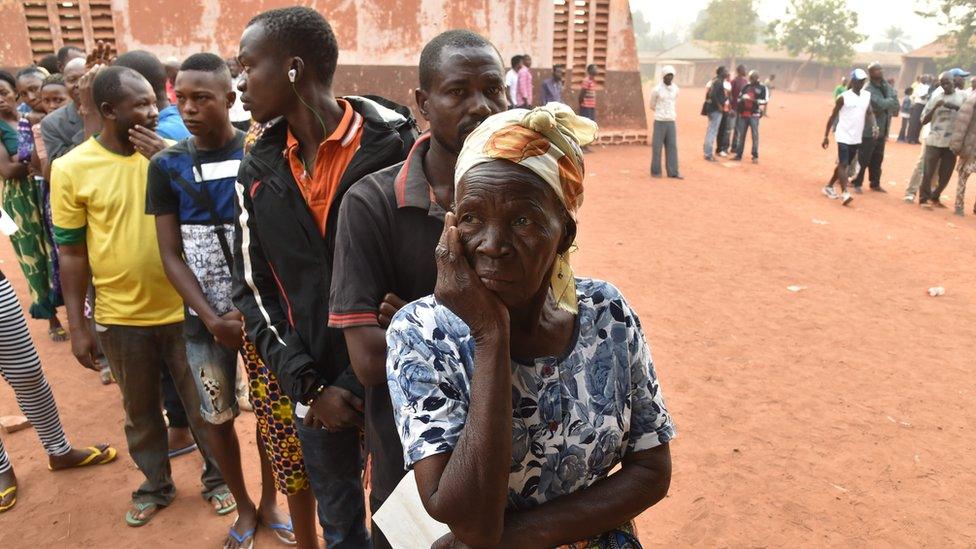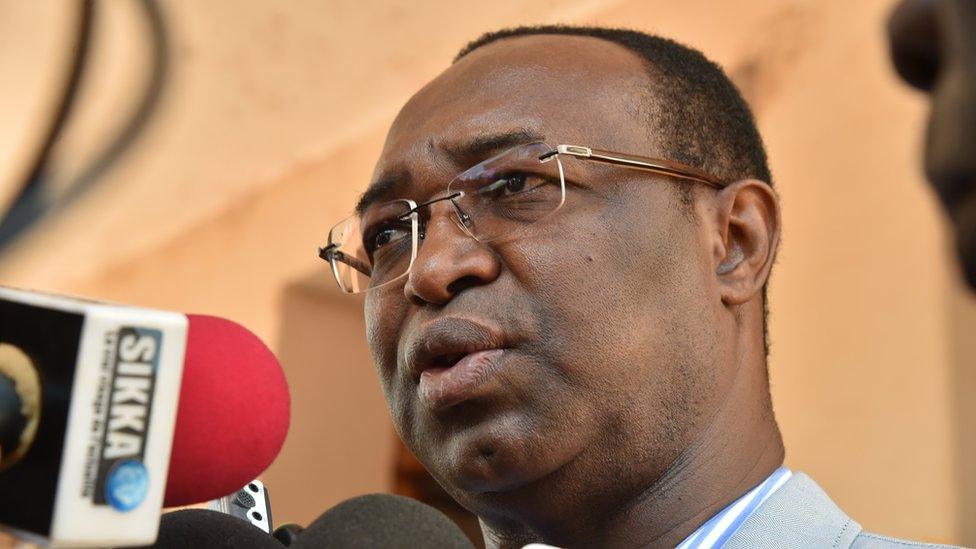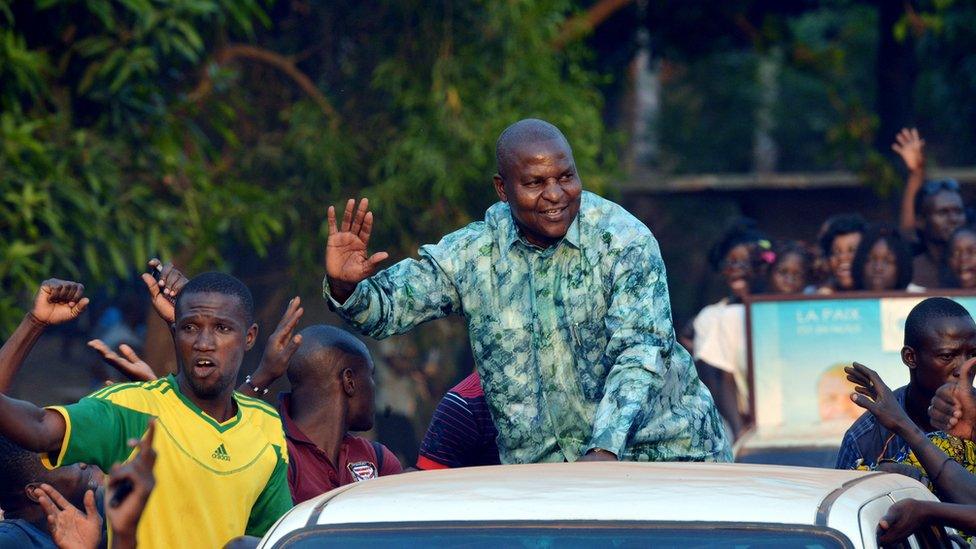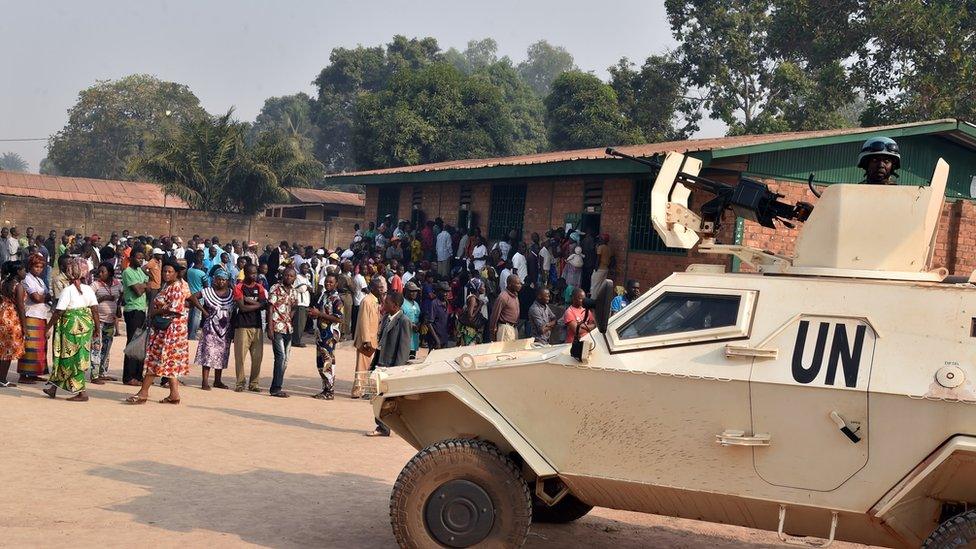Central African Republic run-off: Key issues
- Published

Turnout was high during the first round at 79%
Voters in the Central African Republic have gone to the polls for the delayed second round of presidential elections.
There are hopes that the poll will help turn the page on years of religious conflict.
None of the 30 presidential candidates secured the required 50% majority in the first round of voting on 30 December.
Who is running?
Ex-Prime Ministers Anicet Georges Dologuele and Faustin-Archange Touadera are facing each other in the run-off.
Mr Dologuele served under President Ange-Felix Patasse between 1999 and 2001, and Mr Touadera was prime minister under President Francois Bozize between 2008 and 2013.

Anicet Goerges Dologuele speaking to reporters in Bangui.
Mr Bozize was ousted by mainly Muslim rebels in 2013, and is now in exile.
Mr Dologuele, a businessman, is the candidate of the Central African Union for Renewal (URCA).
He is supported by Mr Bozize's Kwa Na Kwa party, which signed a pact with the URCA in December.
He won the largest share of the first-round vote with 23.78%.
Mr Touadera , a former professor who secured 19.42% of the December vote, is backed by former allies of Mr Bozize who are unhappy with the URCA-Kwa Na Kwa pact.
What are the issues?
Security, communal reconciliation and the economy are the main campaign themes.
Mr Dologuele has promised voters a break from the country's recent violent past.
His campaign slogan is "united we will win".

Faustin-Archange Touadera waves to supporters on the campaign tour.
Mr Touadera is portrayed by supporters as a peacemaker who can bridge the Christian-Muslim divide.
Whoever wins will inherit serious challenges - disarming the armed groups in the north, reconciling warring factions, and ensuring the integration of the minority Muslim population.
Who is likely to win?
The race is too close to call. Mr Touadera was an outsider in the December poll, but made an unexpectedly strong showing.
Much may depend on political patronage. Both contenders have forged alliances with losing candidates from the first round.
As well as the support of Mr Bozize, Mr Dologuele has the backing of Desire Kolingba's Central African Democratic Rally. Mr Kolingba came third in December.
Mr Touadera is backed by Martin Ziguele's Movement for the Liberation of the Central African People. Mr Ziguele came fourth in December. Another 21 first-round candidates are reported to back Mr Touadera.

UN peacekeepers on patrol outside a polling station in Bangui.
If voting patterns are similar to those in December, Mr Dologuele may prevail given that on paper the numbers still stack up in his favour.
But both candidates' ties with Mr Bozize may jeopardise the fresh start many voters are seeking.
What is the security climate like?
Observers praised the calm nature of the December vote, and no major security incidents have marred the run-up to the second round. Security is supplied by UN and French peacekeepers.
A protest in the capital, Bangui, in late January, by supporters of losing candidates who alleged fraud during the first round of voting and demanded that the result be annulled, passed off peacefully.
Nonetheless, electoral officials and human rights groups fear the security deployment is stretched too thin across the country, and have urged the authorities and the UN to boost troop numbers to secure rural polling stations.
BBC Monitoring reports and analyses news from TV, radio, web and print media around the world. You can follow BBC Monitoring on Twitter, external and Facebook, external.